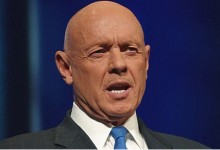
Here they are , in arbitrary order:
- People don’t want to change. Not for the worse, not for the better.
- Things will get worse before they get better.
- Automate your project administration, not your project planning.
- We think we see the world as it is, but in fact we see it as we are (Stephen Covey).
- Change is in the details.
- The real purpose of change management is to help people make sense of the change-pains – not to avoid them.
- HR is not an agent of change but an agent of stability.
- If integration is the destination, then make it part of the strategy and reorganize before you deploy systems.
- The more accurate I start to plan, the more precise co-incidence will hit me (aka: ‘death by detail’).
- Software does not replace discipline (aka: ‘the Debby rule’)
- Legacy systems will always be better – from a rearview mirror point of view.
- A good project manager is like a good parent: trustworthy, predictable and unpopular.
- Real change takes time because it requires perception shifts.
- The purpose is to make agents of your targets.
- Uncertainty is worse than bad news.
- Trust is the currency of change.
- Communication will happen anyway, so better be at the steering wheel.
- Seek first to understand, then to be understood (Stephen Covey).
- Real participation means allowing people to have a stake in the sense-making (this includes whining and letting-go rituals).
- The essence of communication is to create community. Any exchange of information that does not accomplish this purpose is non-communication. Scan your meeting behavior as you keep this rule in mind.
- Approach resistance with respect because it covers people’s most vulnerable and valuable part: their motivation and inspiration.
- We choose our responses to the world – perception is a choice.
- A vision is the shortest path between what is in my head and what people will see or hear (Bill Jensen). Compare this to your 180 slides Power Point presentation.
- Communication is the message sent, not the message received (Bill Jensen).
- Change all you want – but execution happens at the speed of sense making (Bill Jensen).
- Although Organizational Change is not mathematical science, one truth stands out: OO + NT = EOO (Old Organization + New Technology = Expensive Old Organization) (Michael Hammer).
- The bottleneck to human performance is in the limitations of available attention and learning capacity.
- Gathering feedback and not taking action based on the findings can be more damaging than not gathering feedback at all (Naomi Karten).
- In order to understand a system, you should try to change it (Kurt Lewin).
- Culture is by far the best excuse for not changing. Don’t try to understand, rationalize or categorize culture. Rather, take it as a given and learn to navigate it.




